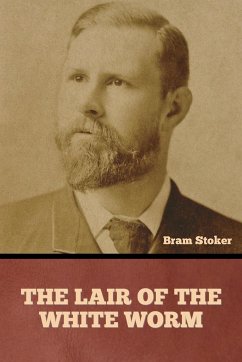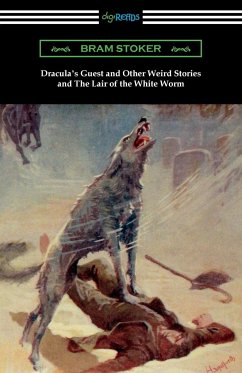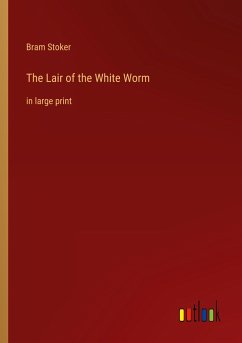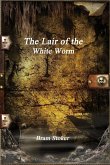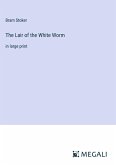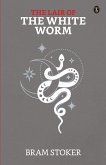The Lair of the White Worm is a horror novel by the Irish writer Bram Stoker. It was first published by Rider and Son of London in 1911 - the year before Stoker's death - with colour illustrations by Pamela Colman Smith. The story is based on the legend of the Lambton Worm. It has also been issued as The Garden of Evil. The book is widely considered one of the worst books ever written. Les Daniels noted that while The Lair of the White Worm had "potential", it was undermined by the "clumsy style" of the writing. The horror critic R. S. Hadji placed The Lair of the White Worm at number twelve in his list of the worst horror novels ever written. Historian of the horror genre H. P. Lovecraft, in his essay "Supernatural Horror in Literature", stated that Stoker "utterly ruins a magnificent idea by a development almost infantile." (wikipedia.org) About the author: Abraham Stoker (8 November 1847 - 20 April 1912) was an Irish author who wrote the 1897 Gothic horror novel Dracula. During his lifetime, he was better known as the personal assistant of actor Sir Henry Irving and business manager of the West End's Lyceum Theatre, which Irving owned. In his early years, Stoker worked as a theatre critic for an Irish newspaper, and wrote stories as well as commentaries. He also enjoyed travelling, particularly to Cruden Bay where he set two of his novels. During another visit to the English coastal town of Whitby, Stoker drew inspiration for writing Dracula. He died on 20 April 1912 due to locomotor ataxia and was cremated in north London. Since his death, his magnum opus Dracula has become one of the most well-known works in English literature, and the novel has been adapted for numerous films, short stories, and plays. The short story collection Dracula's Guest and Other Weird Stories was published in 1914 by Stoker's widow, Florence Stoker, who was also his literary executrix. The first film adaptation of Dracula was F. W. Murnau's Nosferatu, released in 1922, with Max Schreck starring as Count Orlok. Florence Stoker eventually sued the filmmakers, and was represented by the attorneys of the British Incorporated Society of Authors. Her chief legal complaint was that she had neither been asked for permission for the adaptation nor paid any royalty. The case dragged on for some years, with Mrs. Stoker demanding the destruction of the negative and all prints of the film. The suit was finally resolved in the widow's favour in July 1925. A single print of the film survived, however, and it has become well known. The first authorised film version of Dracula did not come about until almost a decade later when Universal Studios released Tod Browning's Dracula starring Bela Lugosi. On 8 November 2012, Stoker was honoured with a Google Doodle on Google's homepage commemorating the 165th anniversary of his birth. An annual festival takes place in Dublin, the birthplace of Bram Stoker, in honour of his literary achievements. The 2014 Bram Stoker Festival encompassed literary, film, family, street, and outdoor events, and ran from October 24 to 27 in Dublin. The festival is supported by the Bram Stoker Estate and funded by Dublin City Council and Fáilte Ireland. (wikipedia.org)
Hinweis: Dieser Artikel kann nur an eine deutsche Lieferadresse ausgeliefert werden.
Hinweis: Dieser Artikel kann nur an eine deutsche Lieferadresse ausgeliefert werden.

